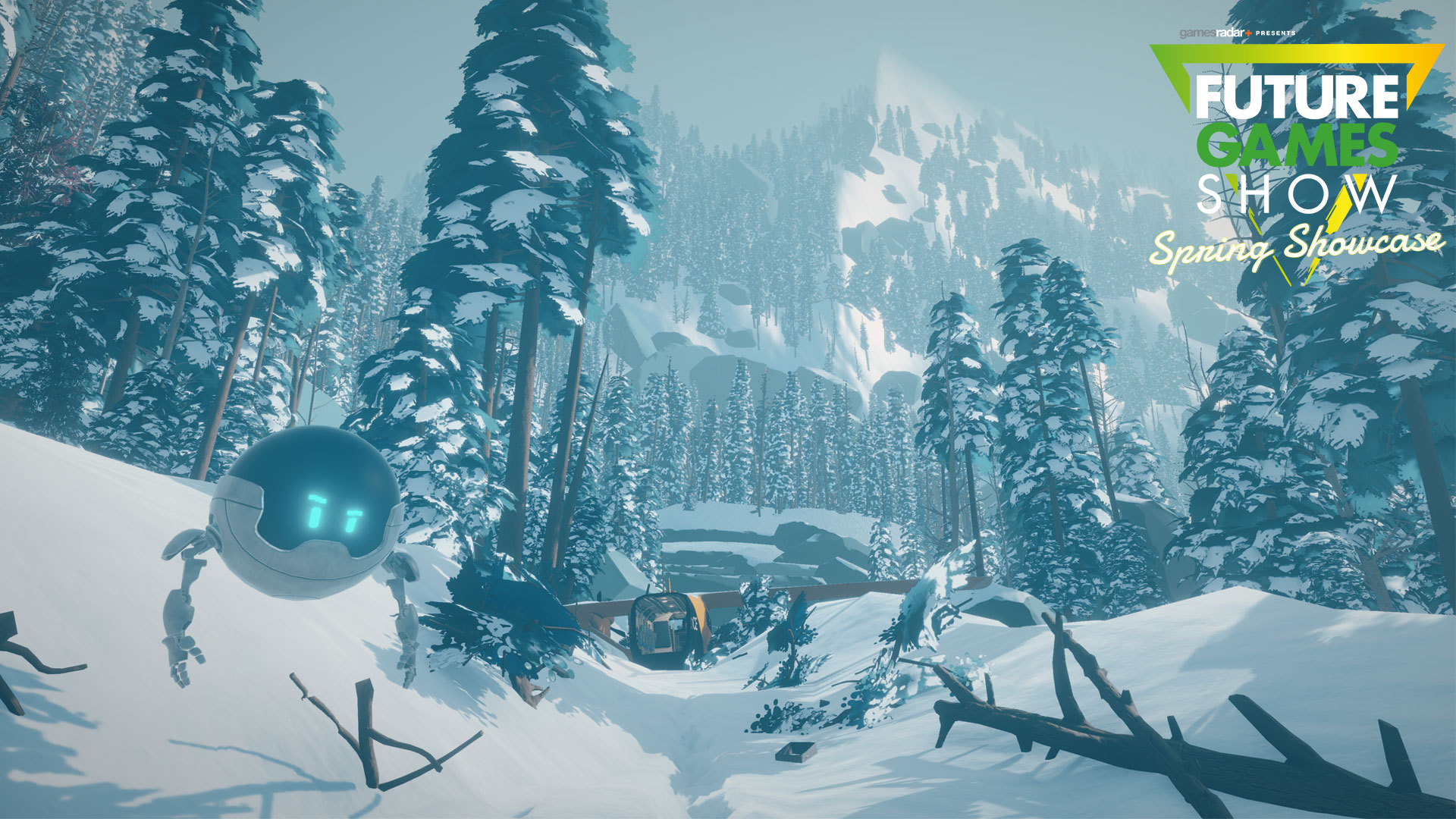Lost Words: Beyond the Page explores a personal story of loss and grief split between the pages of a diary and a fantasy world
"Fantasy is a lens through which we can examine the real world"
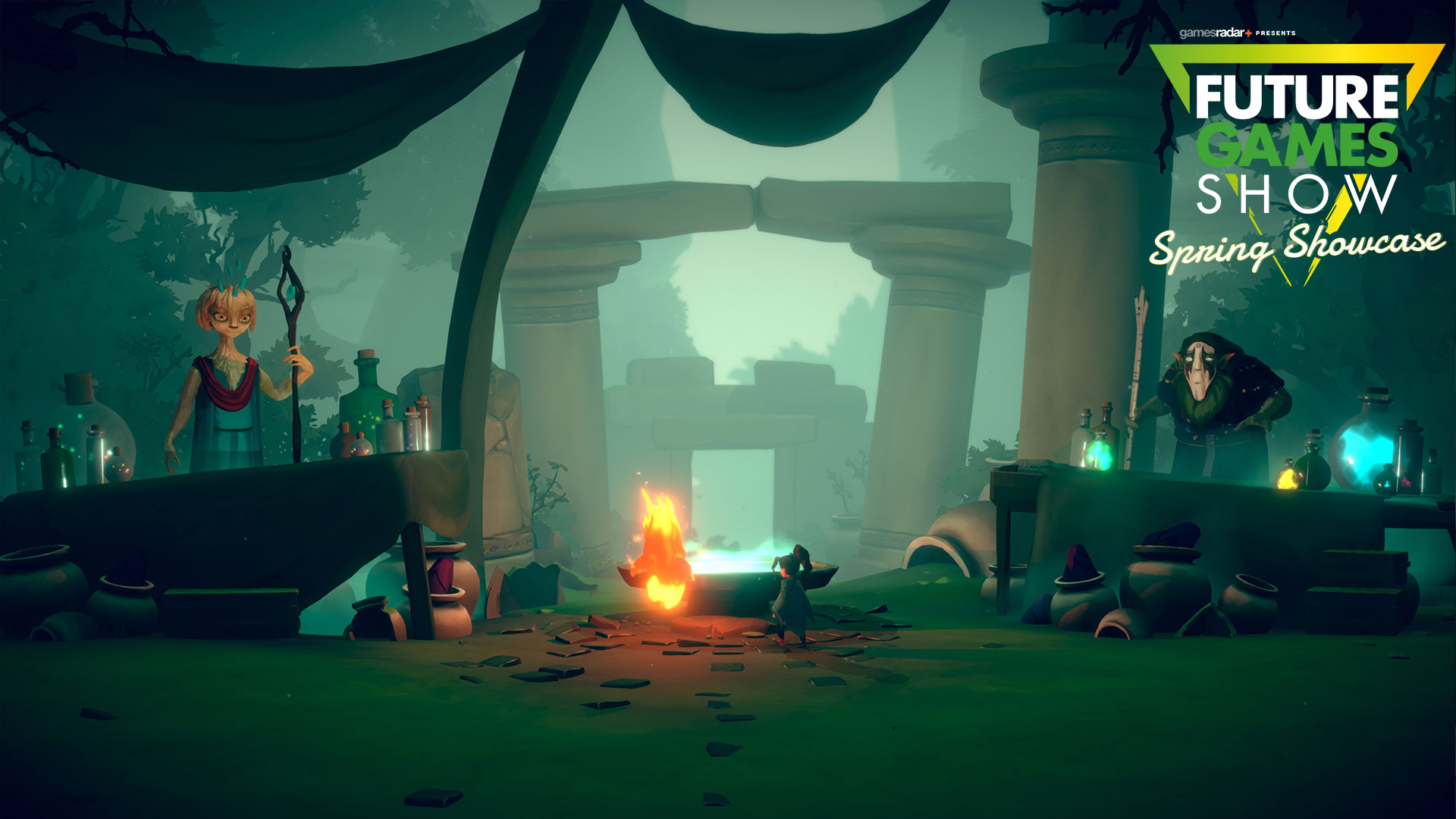
Lost Words: Beyond the Page from developer Sketchbook Games has you use words to navigate through an emotionally moving narrative. You'll take on the role of a young girl called Izzy, who's trying to handle some difficult news about her grandmother. With its own unique take on platforming, this atmospheric 2D adventure takes place between the pages of Izzy's diary and the world of Estoria, which sets the scene for the fantasy story she starts to write. Written by Rhianna Pratchett, Lost Words: Beyond the Page takes you through a personal story that deals with themes such as loss and grief against the backdrop of a watercolor world.
Originally, the team looked at a story dealing with the divorce of Izzy's parents, but Pratchett believed the team should take a different approach, exploring themes that are perhaps more universally understood and experienced. "When you deal with it [loss] when you're young, it's sort of like coming-of-age," Pratchett tells GamesRadar as part of the Future Games Show Spring showcase. "You realize that the world is not fair, people get taken away from you, and you have to learn how to deal with it. So we sort of settled on using things like the stages of grief as a structure for the levels, the music, the art, the tone; I know that makes it seem very sad and somber, but it's actually quite hopeful and quite joyful. It's really about how our memories help keep people alive who we've lost."
Stages of grief
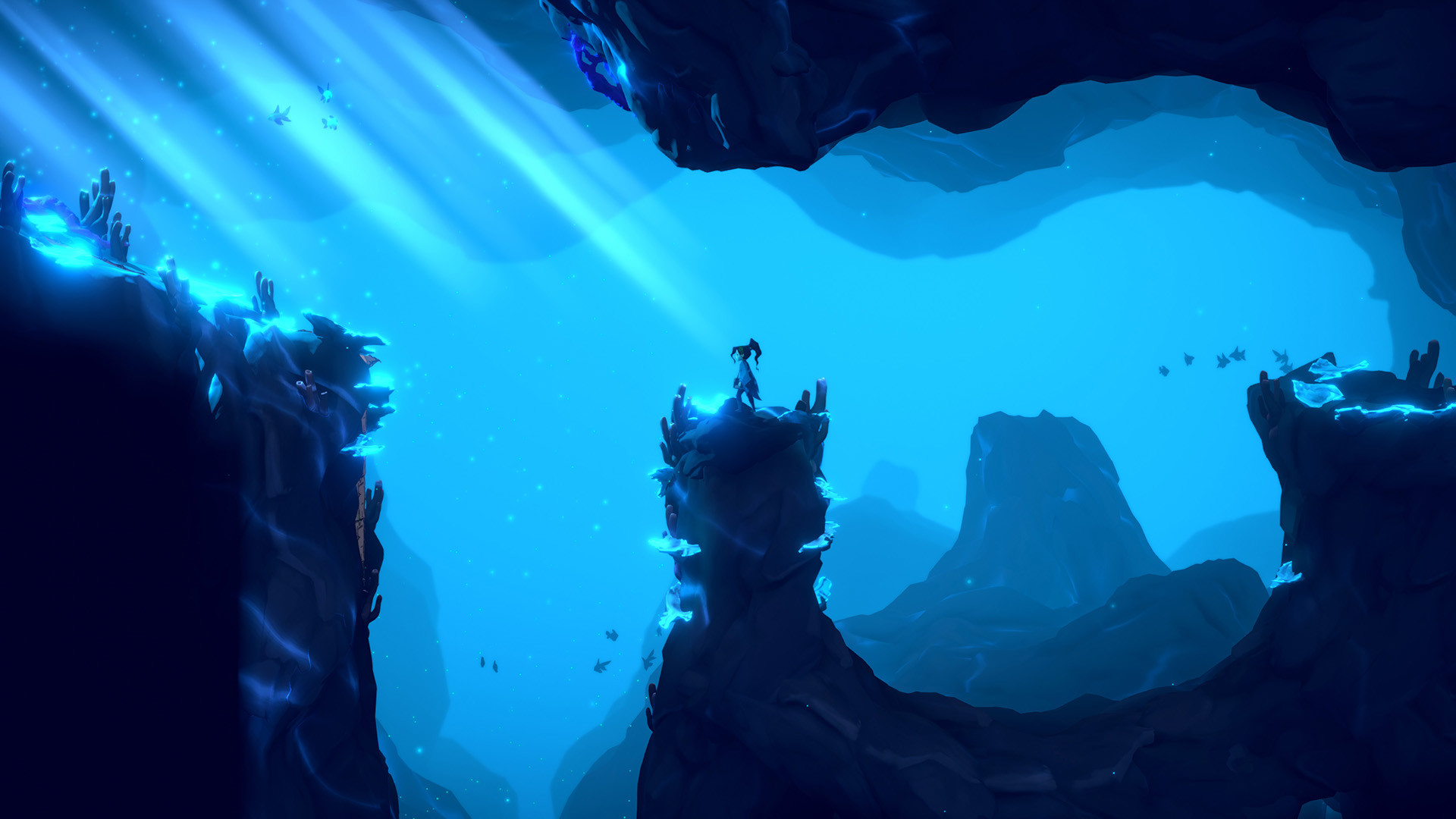
To deal with the loss she's facing in the real world, Izzy feels compelled to write a fantasy story in her diary, all for her Gran who's in hospital. Made up of eight chapters that are split between pages in her diary and the fictional setting of Estoria, words are used as both platforms to navigate through Izzy's diary, and as means to solve puzzles, cast spells, and unlock things in the fantasy landscape. Pratchett explains that making the words function both narratively and as a gameplay mechanic was one of the biggest challenges in writing and designing Lost Words: Beyond the Page, but it's something that the team believes they've been able to achieve.
As you start to progress through the adventure, and as Izzy tries to deal with the difficulties she's facing, events in the real world begin to affect and shape the story she's writing in Estoria. "The two worlds in the game play into each other in a number of different ways," Sketchbook Games founder Mark Backler explains. "The things that happened to Izzy in her real life end up having repercussions in the fantasy world. So when she gets some unexpected and bad news [for example], when we move into the Estoria chapter, the village she lives in is on fire and has been attacked. And there's a number of parallels between the events in both sections."
Backler goes on to say that the two worlds crossover and intersect in other ways too. Post-it notes, for example, on the desk around the diary show the evolution of the characters you meet in Estoria, and some of the toys around Izzy's bedroom appear in the fantasy world in different ways. All of these elements reflect Izzy's own personal journey in crafting the story and how she's trying to deal with events in reality.
"Fantasy is a lens through which we can examine the real world," Pratchett adds, "and this is a very visual representation of that. And so she uses the story to deal with what she's going through in the real world, and they both sort of start to help each other. You're really going on this journey with her as she sort of uses the fantasy world to deal with the real world."
The power of words
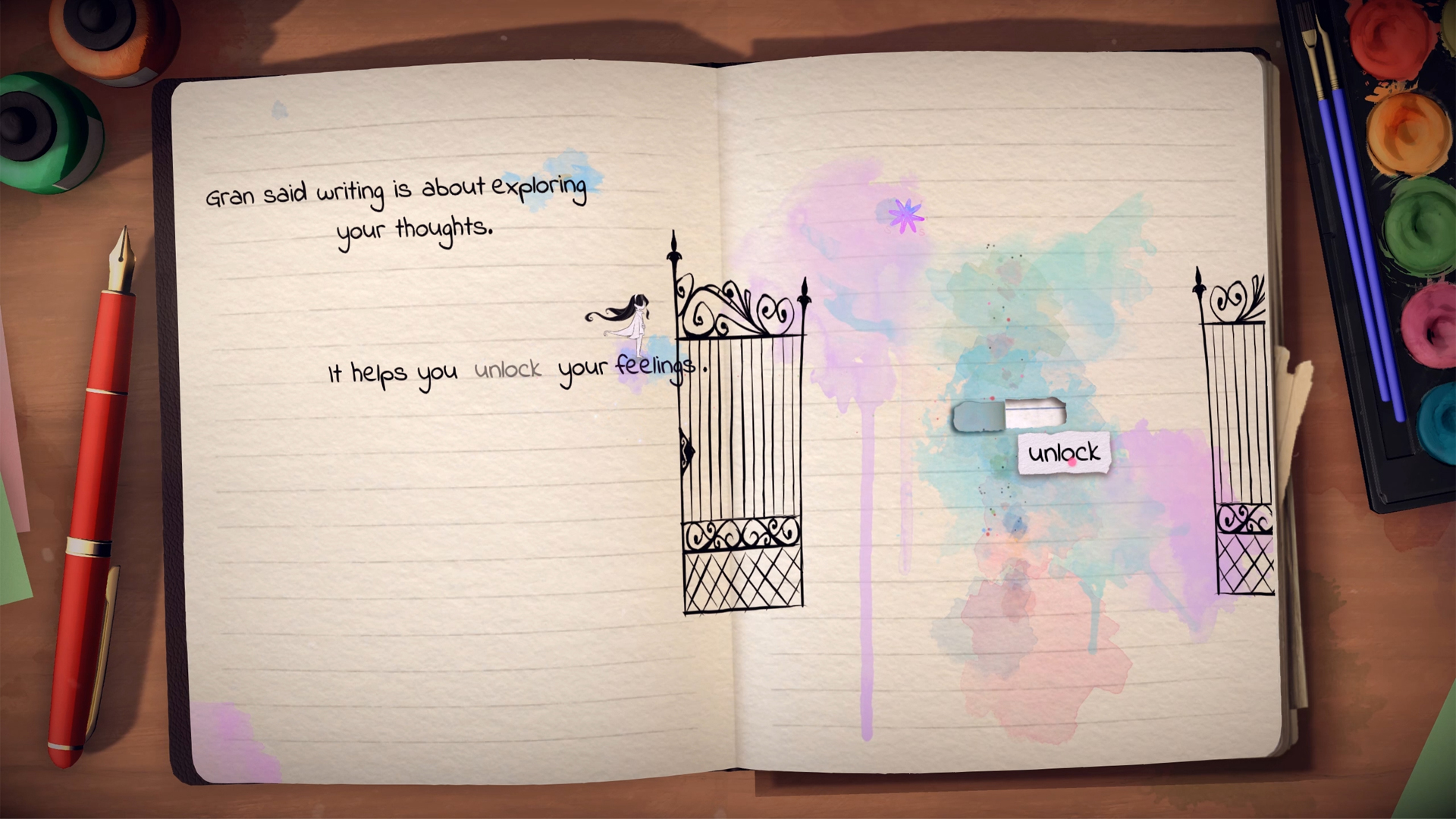
Pratchett, who has written for many games over the years, from mobile titles like Rival Kingdoms to bigger more cinematic games like Tomb Raider, Mirror's Edge, and Heavenly Sword, relished the chance to work with a smaller team and have more of a say in the direction of the story that could draw from her own experiences of loss.
Sign up to the GamesRadar+ Newsletter
Weekly digests, tales from the communities you love, and more
"I've experienced quite a bit of loss in my life," Pratchett says, "and I felt I had something to say about the journey of loss and about how you get through, and the intersection between memory and loss as well. So it was quite personal on that level. I actually wound in certain kinds of anecdotes and sayings and little stories, particularly about my grandmothers, and what they were like, and that was really nice to be able to do. That's something you wouldn't necessarily get the kind of time and space for in the bigger games."
A lot of care went into handling the subject of loss and Izzy's journey, with the team working with the Wellcome Trust to speak to child psychologists about children going through trauma, and how they develop coping mechanisms for them. While loss is often a sad and difficult topic to explore, there's a sense of hope and joy to be found in Izzy's story that the team hopes will have a positive impact. "We knew we wanted to make a game that could have a positive impact," Backler says. "Making games that can make a difference is definitely something that we're really interested in, and something as a studio we're looking to do with our future games as well."
Originally released on Google Stadia, Lost Words: Beyond the Page is coming to Steam, Xbox One, PS4, and Nintendo Switch on April 6.
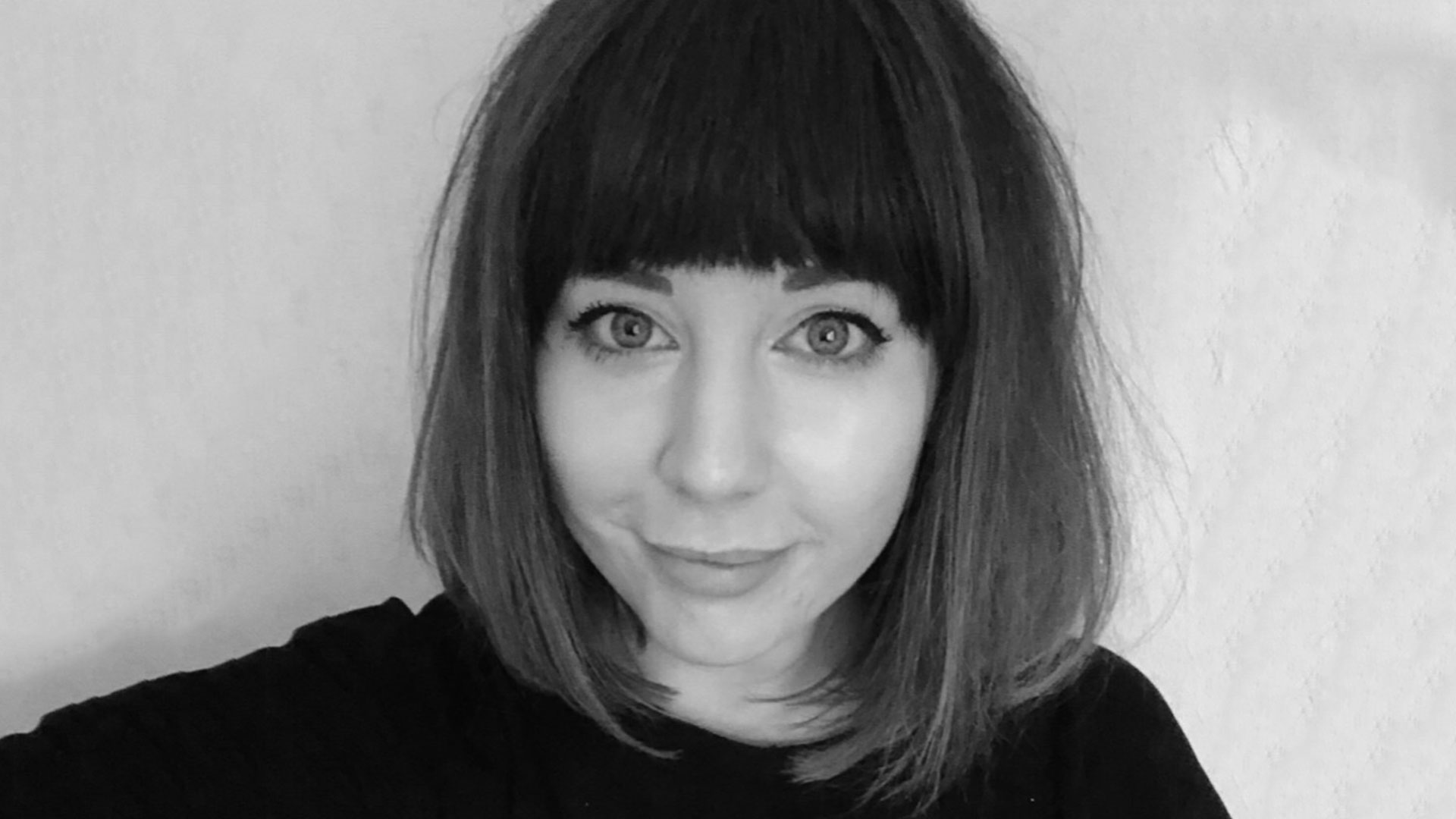
I started out writing for the games section of a student-run website as an undergrad, and continued to write about games in my free time during retail and temp jobs for a number of years. Eventually, I earned an MA in magazine journalism at Cardiff University, and soon after got my first official role in the industry as a content editor for Stuff magazine. After writing about all things tech and games-related, I then did a brief stint as a freelancer before I landed my role as a staff writer here at GamesRadar+. Now I get to write features, previews, and reviews, and when I'm not doing that, you can usually find me lost in any one of the Dragon Age or Mass Effect games, tucking into another delightful indie, or drinking far too much tea for my own good.
